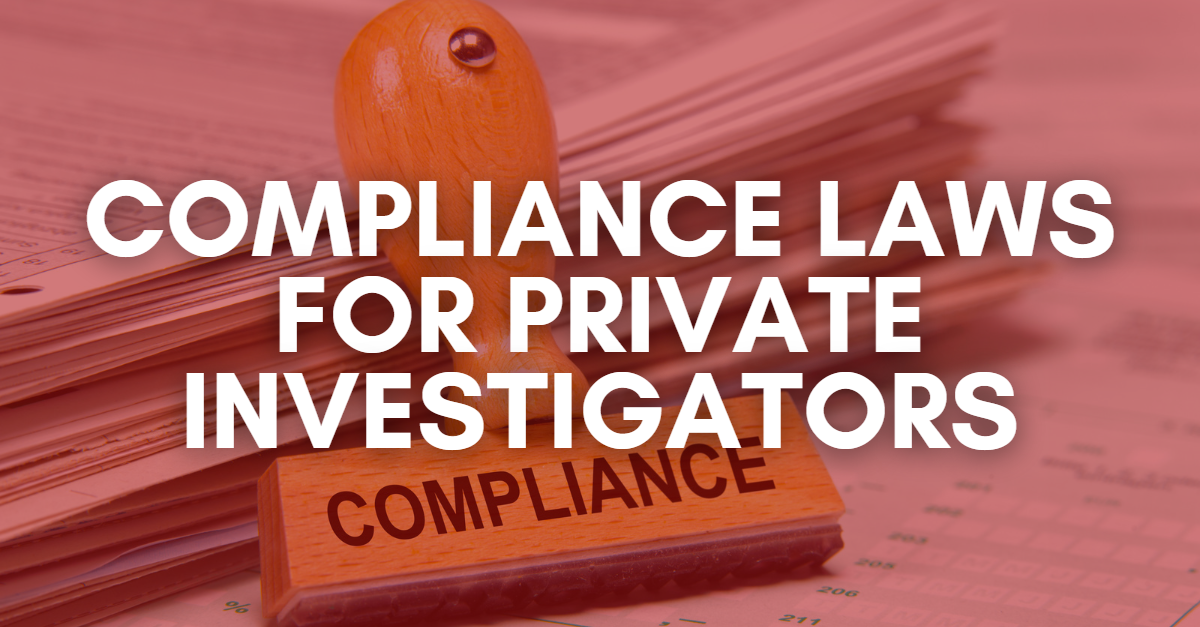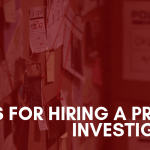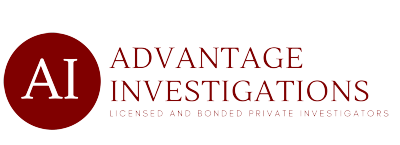Compliance laws and regulations are of utmost importance for private investigators in the United States.
As professionals entrusted with sensitive information and investigative tasks, understanding and adhering to these laws is essential. In this article, we will explore key compliance laws and regulations that private investigators must follow to ensure ethical and legal practices in their work.
Licensing, privacy, and data protection
Below we delineate a few important factors concerning compliance laws for PIs:
- Licensing and Registration Requirements: Private investigators in the US must comply with licensing and registration requirements established by individual states. This process typically involves meeting specific criteria, such as education, experience, and passing background checks. Ensuring proper licensing is essential to operate lawfully and gain clients’ trust.
- Privacy Laws and Regulations: Private investigators must navigate privacy laws to protect individuals’ rights while conducting their investigations. They must be familiar with federal and state laws that govern the collection, use, and disclosure of personal information. Adhering to privacy laws ensures that investigations are conducted legally and ethically.
- Data Protection and Security: Private investigators handle sensitive information during their investigations. It is crucial to comply with data protection laws to safeguard this information from unauthorized access, use, or disclosure. Implementing security measures such as encryption, secure storage, and secure data transmission protocols helps maintain compliance and protect clients’ data.
Compliance laws concerning surveillance and background checks

A few other things to consider in terms of compliance for PIs are surveillance laws, background checks and professional conduct. That is to say, each of these have their own regulations that private investigators must remain aware of.
- Surveillance Laws and Regulations: Surveillance is a common practice in private investigation. However, private investigators must comply with surveillance laws and regulations to ensure that their actions do not infringe on individuals’ rights. Understanding the boundaries and requirements for conducting surveillance legally is paramount.
- Background Check Regulations: Private investigators frequently perform background checks as part of their investigations. Compliance with background check regulations, including the Fair Credit Reporting Act (FCRA), is essential. This involves obtaining consent, using reliable sources, and properly documenting the information gathered.
- Ethical Standards and Professional Conduct: Compliance with ethical standards is vital for private investigators. Upholding integrity, honesty, and objectivity in their work builds trust with clients and the community. Private investigators must maintain professionalism and act in accordance with ethical guidelines set forth by industry associations.
Thorough documentation and professional development
Accurate and comprehensive documentation and reporting are crucial in private investigation. Private investigators must comply with reporting requirements, ensuring that all relevant information is properly documented, organized, and securely stored. This includes case notes, evidence, witness statements, and other pertinent information.

Furthermore, private investigators should engage in continuous learning to stay updated on changes in compliance laws and regulations. This requires ongoing training and continued professional development. Participating in training programs, workshops, and conferences keeps investigators informed about emerging trends and evolving legal requirements.
Adhering to compliance laws
By adhering to compliance laws and regulations, private investigators can ensure ethical conduct, protect client interests, and maintain their professional standing. Additionally, implementing secure data practices, following privacy and surveillance laws, complying with licensing and registration requirements, and upholding ethical standards are all essential components of operating a successful and compliant private investigation practice.
In summary, private investigators in the US must navigate a complex landscape of compliance laws and regulations. From licensing and privacy laws to data protection and ethical standards, understanding and adhering to these requirements is crucial for maintaining legal and ethical practices.

In other words, by staying informed, continuously educating themselves, and integrating compliant practices into their work, private investigators can provide valuable services while upholding the highest standards of professionalism and integrity.
Learn more about what we do and why you should hire an experienced private investigator. Simply click on this link to get in contact with one of our team members.










